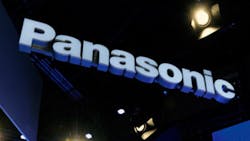Elon Musk's Union With Old Japan Inc. Is Blossoming, For Now
They’re the oddest of couples: Elon Musk, the free-wheeling co-founder of Tesla Inc., and Kazuhiro Tsuga, the buttoned-up salaryman who runs Japan’s Panasonic Corp.
Yet against all odds, an unlikely partnership built in a dusty Nevada desert appears to be working. Just two years after the two began operating a giant battery factory on the outskirts of the aptly-named town of Sparks, Panasonic in November said the business will soon be profitable. The Japanese firm’s methodical discipline--some workers back home still start the day with the corporate anthem--is meshing with Tesla’s hard-charging sensibilities.
It’s the culmination of a years-long overhaul spearheaded by the Panasonic chief, elevating a struggling electronics house to a potentially prime position in future mobility. Musk’s larger-than-life persona and antics hog the headlines but if he succeeds at bringing electric cars to the masses, a lot of the credit goes to Tsuga. Panasonic was already a supplier to Tesla when he took the helm in 2012, but it was the 62-year-old who made the big bet on Musk and sank $1.8 billion into making batteries for the Model 3 at Gigafactory 1.
At one of their early meetings in 2012 in California, Tsuga grilled Musk about prices and product roadmaps. All he got was a blank look before the billionaire checked off his strategy: Be first to start and first to reach volume. His confidence won over Tsuga, who’s since made Tesla a critical plank of Panasonic’s revival strategy.
“I was impressed. Where the average person might be too scared to do anything, he’s flooring the gas pedal,’’ Tsuga said in an interview in Tokyo. “Without someone like him, adoption of electric vehicles will have a really hard time.’’
Panasonic was then just emerging from a rough couple of decades. Profit peaked in the 1980s alongside its last hit: the VHS video player. It bought the Universal film business only to pull out in five years. Then, it lost billions on plasma TVs, on which Tsuga last worked before taking the top job. Tsuga describes the subsequent, wrenching restructuring he led as “self-denial,’’ killing plasma TVs and shifting from consumer electronics to business customers. Now, he’s steering the company again toward choppier waters--beyond mercurial swings, Musk also has a penchant for missing targets and surprising investors, as with the Model 3 price cut last week.
Others worry about Musk's decisions, including smoking pot on a popular podcast and tweeting out a potential take-private price of $420 that regulators say has significance in marijuana culture.
“What makes the partnership so unusual is that Panasonic is taking a risk just as Japanese companies have become more risk-averse,’’ said Michael Cusumano, a professor at the MIT Sloan School of Management. “Most Japanese executives would be afraid of Elon Musk, because he’s too unpredictable and radical.’’
Tesla representatives pointed to a Musk tweet about the partnership but declined to comment further for this story.
About the Author
Bloomberg
Licensed content from Bloomberg, copyright 2016.
